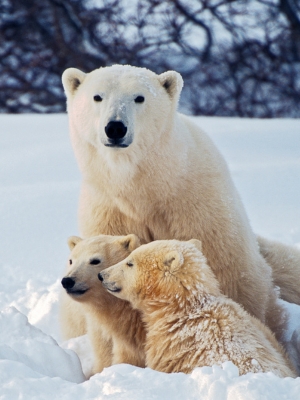On Tuesday, March 22, a tiger attack occurred at Wooten’s Everglades and Airboats in Ochopee, Florida. A self-proclaimed Animal Sanctuary and Alligator Park, Wooten’s offers a live alligator show included with the purchase of admission, where visitors can “hold and hug an alligator.” Alongside otters, alligators, crocodiles, and turtles, Wooten’s owns two tigers and two lions.
An employee was seriously injured at the animal park after putting his hand through the fence into the tiger enclosure during feeding time despite verbal warnings from other staff members telling him not to do so. The tiger reportedly grabbed hold of the man with his mouth, held onto both of his arms, pulled him towards the caging, punctured both arms down to the bone, and then let him go. The man suffered large open wounds on both of his forearms and was subsequently airlifted to the hospital. Following hospital admission, the extent of the man’s injuries remains unknown.
Big Cat Attacks Cause Devastating Injuries
In a responding police officer’s bodycam footage, the wounded man is seen lying on his back, arms covered in blood, uttering the words “I’m [expletive] dead.” One of the officers wrapped the man’s punctured arms to slow blood loss before the medical team arrived as he exclaimed in pain, asking when the ambulance would arrive. Officers noted that the top of his middle finger was missing and discussed the possibility of retrieving the missing piece from the tiger enclosure to reattach it to his hand.
According to a local wildlife expert and ER doctor interviewed by Wink News, a tiger attack “never ends well for a human on the receiving end, and a tiger can exert …about 1,000 pounds of force when they bite down… you can not only expect lacerations and bad cuts, but bone crushing injuries as well.” If bitten limbs can be saved, infection often becomes the main concern. Wild animals can transfer a significant number of bacteria to humans from creating deep-tissue puncture wounds with their claws or teeth.
Zoos Routinely Put Animals and Members of the Public in Danger
This was the second tiger attack to occur in Collier County, Florida within just four months. Luckily, the tiger involved in this incident was not killed, unlike Eko, the Malayan tiger who bit a member of the custodial staff at the Naples Zoo in December 2021 and was shot dead as a result. Malayan tigers are endangered in the wild.
While reminding us of the sheer power and strength that wild animals possess, this incident highlights the very real dangers presented by the interactive experiences that zoos and tourist attractions throughout the United States continue to endorse, including pay-to-play experiences like tug-of-war, or posing with “ambassador animals” touted around on leashes and used as photo props. These types of attractions will often place meat at the end of the tug-of-war rope to “motivate” the animals to engage in the experience, despite the blatant states of frustration and stress that they vividly demonstrate while participating in such degrading, exploitative acts. If anything, these two incidents indicate that even so-called safety measures fail to provide a safe barrier between humans and the big cats inside.
The Need for the Big Cat Public Safety Act
If passed by Congress, the Big Cat Public Safety Act will decrease the number of dangerous scenarios with big cats available across the United States by banning the private ownership and public interaction with most big cat species. And, by banning private ownership of big cats and damaging, yet lucrative, practices like cub petting, the bill would indirectly help curb cruel captive big cat breeding.
Speak Out for Big Cats! Write to Your Lawmaker in Support of the Big Cat Public Safety Act
To improve public safety measures and captive big cat welfare throughout the U.S., please reach out to your Member of Congress today to encourage them to support the Big Cat Public Safety Act.
Keep Wildlife in the Wild,
Devan

 Dear Reader,
Dear Reader,